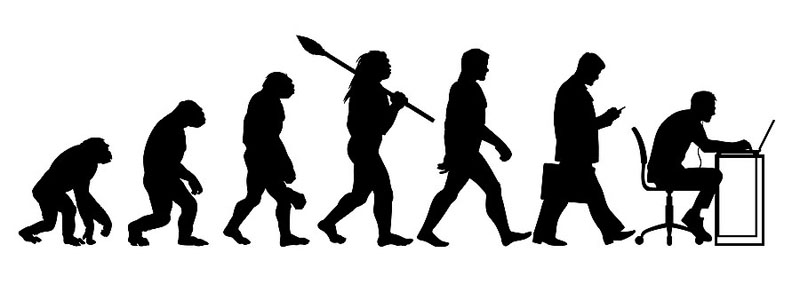A Summary of the History of the World, in Videos
THE GREEK ERA
by Edward Ulrich, updated February 18, 2022
The videos on this page detail aspects of Greek history. It is a part of the article “A Summary of the History of the World, in Videos.”
Greece has many very distinct historical periods that date back to prehistoric times. The information on this page is grouped into the periods of the Minoans, the Mycenaeans, the Greek Dark Ages, the Classical Era, and the conquests of Alexander the Great. [Note: This section has been significantly updated and expanded on May 5, 2021.]
The Minoans were an early sophisticted Greek civiliation on the island of Crete who were prosperous between 3,500 BC and 1,500 BC.




This video summarizes the ancient Minoan civilization that arose on the island of Crete. They are considered to be Europe’s first civilization, where they had a peaceful egalitarian existence creating artisan goods and trading with other cultures in the Mediterranean region. They built advanced palace complexes that had indoor plumbing, and they created much artwork.

This video explains the sophisticated Minoan culture on the island of Crete, which predated classical Greece by more than a thousand years.

This video by Chirs Hasler on the Study of Antiquity and the Middle Ages channel explains the ancient Minoan civilization that existed on the island of Crete.
The Mycenaeans on mainland Greece gained prominence after the Minoans.





This video details the Mycenaeans, an early Greek culture from about 1,600 BC to 1,200 BC who predated the more well-known classical Greece by more than a thousand years. They were a warrior society that existed in a mythical age, being the legendary ancestors of classical Greece. Many of the later Greek myths were at least partially based on events that actually happened with the Mycenaeans, such as the Trojan War.

This video summarizes the rise and fall of the ancient Greek Mycenaean civilization, which gained prominence after the fall of the Minoan civilization at around 1,600 BC.

This 2004 BBC documentary details the archeological discovery of the real city of Troy in ancient Greece, which is a city that was previously assumed to only be a myth. It is explained that the city was in fact destroyed during the Bronze Age at around the same time it happened in the myth. The city existed at a strategically important costal trade route between the Mediterranean Sea and the Black Sea.

This video details the use of chariots in warfare by the ancient Greek Mycenaeans. It explains the development of different types of chariots, how lightweight chariots were normally pulled by two horses where each chariot carried both a driver and a warrior, and it explains scenarios that likely would have happened in the battles.

This video explains the fall of the Mycenaean Civilization in 1,100 BC and the Dark Age that followed which lasted until 750 BC.
“The Greek Classical Period” is between 750 BC and 480 BC.









This three part PBS “Empires” documentary (consolidated into one video here) narrated by Liam Neeson details the rise of Greece from being a collection of small independent city-states in 570 BC to becoming the world’s first democracy and a superpower in the Mediterranean, followed by its quick descent into chaotic mob rule by around 400 BC.
The documentary explains the innovative concepts of Democratic government that were experimented with and applied in ancient Greece, as well as the serious problems that arose due to its configuration essentially being simply “mob rule.” [Note: The first truly effective Democratic government was not established until thousands of years later with the founding of the United States. The United States is technically a “Republic” and not a “Democracy,” see this interesting video that explains the differences between the two systems.]
The documentary explains the innovative concepts of Democratic government that were experimented with and applied in ancient Greece, as well as the serious problems that arose due to its configuration essentially being simply “mob rule.” [Note: The first truly effective Democratic government was not established until thousands of years later with the founding of the United States. The United States is technically a “Republic” and not a “Democracy,” see this interesting video that explains the differences between the two systems.]

This article is a summary of a book entitled “Homosexuality in Ancient Greece: The Myth is Collapsing,” written by Adonis Georgiadis in 2004, where he details evidence showing that homosexuality was generally not considered acceptable, let alone “ideal” in ancient Greece. The evidence he examines includes the work of Athenian poets, vase illustrations, ancient laws at the time, and other types of information.

This video details the The Battle of Thermopylae in Greece in 480 BC, where only 7,000 Greek Spartan soldiers fought 300,000 soldiers from the invading Persian Empire, being outnumbered 50:1. Along with explaining the circumstances of the conflict, the video also details the harsh practices of the Spartan warrior culture at the time, and it explains the advanced armor and weapons that the soldiers used. The Spartans were not typical of all Greeks, and in fact they were often adversaries of the other Greek city-states such as Athens, who they frequently had conflicts with.

This 2010 BBC documentary explains the ancient site of Delphi, which was a location that was sacred to the Greeks, where people of all social classes made pilgrimages to bring offerings and ask questions of its Oracles.

This video shows a simulated walkthrough the ancient Greek site of Delphi, with narration. Delphi was site that was sacred to the ancient Greeks, where they made pilgrimages to bring offerings and ask questions of its Oracles. The video initially flies over the site, and then walks through the area among the pilgrims.

This video shows a simulated walkthrough of the Acropolis and the Parthenon in ancient Greece, with narration. The video initially flies over the site, and then walks through the area among the inhabitants at the time.

This video shows a simulated walkthrough of Port Piraeus during the time of ancient Greece, which was the primary port of Athens. The video initially flies over the site, and then walks through the area exploring the harbor where the famous Trireme war ships were docked.

This video shows a simulated walkthrough of the home of Pericles, who was a politician that was a wealthy resident of Athens during the time of Ancient Greece. The video initially flies over the site, and then walks through the house.

This video on the “Epic History TV channel” details Alexander the Great’s conquests of all of Persia between 334 BC and his early death in 323 BC at age 32. The video makes use of detailed computer simulations that depict the strategies and situations of key battles. It explains his long string of victories over a period of ten years due to his effective strategies and courage as a general, as well has how the newly acquired lands immediately fragmented into empires that fought with each other for power after his death, with most of the regions ultimately being subjugated by Rome a few hundred years later.
This well-made German ZDF documentary details the life of Alexander the Great, the Greek king who conquered Persia for Greece while he was in his twenties.



This episode details the early life of Alexander the Great, where he grew up being trained as a warrior, tutored by Aristotle, and expecting to one day be the king of his province. Alexander’s kingdom of Macedonia was initially thought of as being somewhat of a “backwater” area before Alexander took control of most of Greece and embarked on his ambitious campaign of conquering Persia.

This second episode explains Alexander the Great’s ambitious conquest of Persia, where he won key battles due to courage and good strategy, leading to many regions of the area such as Babylon and Egypt then welcoming him as a liberator without a fight.
He was the last significant leader of Greece, and his death resulted in the fragmentation of the newly subjugated lands of Persia, followed by Rome eventually taking power in the region a few centuries later.
He was the last significant leader of Greece, and his death resulted in the fragmentation of the newly subjugated lands of Persia, followed by Rome eventually taking power in the region a few centuries later.
<< previous section | next section >>
Article Tree
| A Summary of the History of the World, in Videos |
| THE GREEK ERA |






